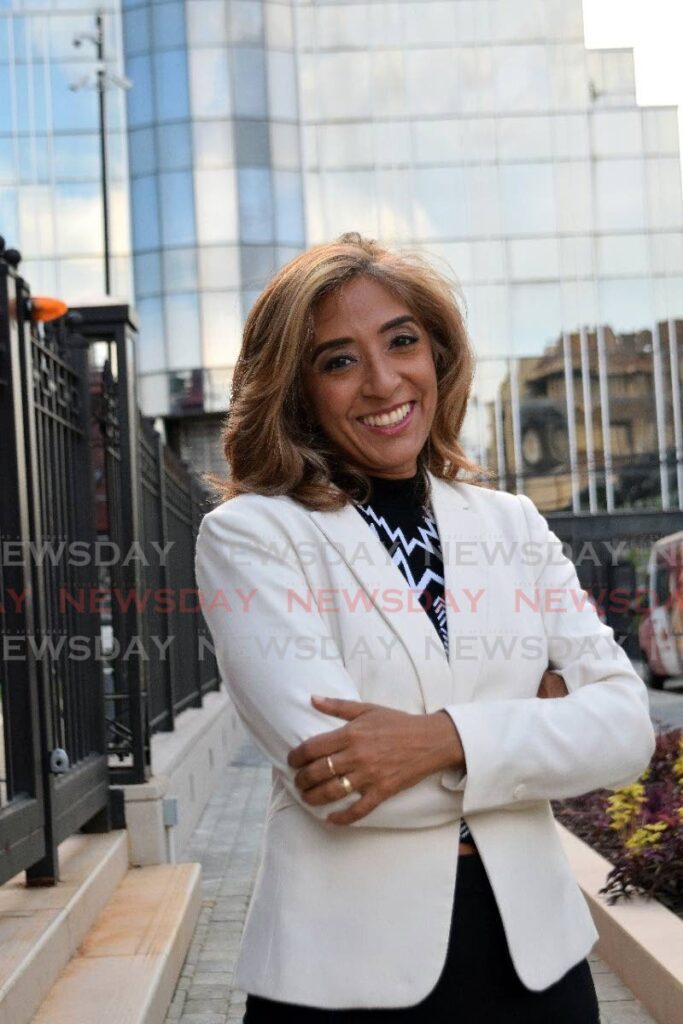A fight for lives

Dr Gabrielle Jamela Hosein
TODAY WE watch Hurricane Beryl pass southern Jamaica; a surreal experience of tracking a moving disaster minute by minute, our thoughts with the most vulnerable, and our hopes that it will be downgraded accompanying our prayers.
If you are a Caribbean person, you would know we are brought together by cricket, carnivals and hurricanes. That is when, across our many differences, our shared history and geography make our hearts celebrate with or break for each other as they do now for our sisters and brothers in Union Island, Mayreau, Petit Martinique, Canouan, Bequia, St Vincent, Grenada and Barbados, where individual homes, fishing boats, agricultural farms and livelihoods were all wrecked, in some places worse than others.
We’ve seen this before in The Bahamas, Barbuda, Dominica and Puerto Rico after Irma and Maria in 2017 and Dorian in 2019. Maria was the deadliest Atlantic hurricane in a century.
The Caribbean is becoming a postcolonial register of islands mutilated by storms that follow the same path as ships which once brought the enslaved and indentured. History comes to our shores again and again like the tides; the wealthy nations that profited from the slave trade and exploitation of indentured workers creating the climate crisis which threatens us today.
Beryl is the first June hurricane ever to reach category 5, the farthest east a storm has ever hit category 4, and the first storm before September to go from tropical depression to major hurricane in under 48 hours. It is the earliest category 5 hurricane ever recorded in the Atlantic basin, and it decimated Carriacou in “half an hour.” The satellite image of this tiny island, smaller than an iris in the eye of Beryl, is symbolic of how overwhelmed our nations will be.
There have always been hurricanes, named after the Taino god, Juracan. However, the sense of dread that now accompanies hurricane season, as it is expected to worsen because of man-made global warming, is something full of both greater terror and anger.
Anger at the fossil industry and governments that knew about global-warming predictions decades ago, invalidated science and assassinated activists, suppressed renewable technology from becoming mainstream and breaking global dependence on oil and gas, and threw corporate-social-responsibility pennies and PR at communities, creating dependence on and loyalties to fossil giants rather than resistance movements.
Such fury is vital to acknowledge as much as the mental distress and post-traumatic stress disorder (PTSD) that follows in the wake of hurricane destruction. We feel for each other. We are more than debris.
Significant activism to stop fossil production through direct action and disruption, and legal challenges, has grown. Governments typically act as if these are fringe movements that don’t understand economics and are opposed to development, or are partisan and cannot be trusted, but ordinary people are mobilising to prevent planetary-scale, irreversible harm because we will pay the costs for profits that we will never see.
Part of the reason that radical tactics are used is because protest hardly makes news, and therefore finds it difficult to sufficiently kickstart debate, show the desperation of our times or mainstream clear demands. As one young woman from Just Stop Oil said in an interview, “I’ve been told so many f---ing times: Go to Parliament Square, go to an oil refinery or whatever. I’ve locked myself to an oil tanker for 36 hours. Nothing. I was just at Parliament Square for three days with 60,000 people, nothing happened.
"But my best friend throws soup on a f---ing Van Gogh and we’re in the news for months.”
Besides grassroots and feminist groups in our countries, you can join the Caribbean Youth Environmental Network, the Caribbean Youth Climate Justice Coalition and the Caribbean Climate Justice Alliance and get information from the Caribbean Climate Calabash, the Climate Conscious Podcast and Global Yaadie which present Caribbean climate change news. You can echo Barbados PM Mia Mottley’s call to cancel debt and finance a loss and damage fund, precisely because our governments will have to borrow at high premiums to rebuild, increasing indebtedness and impoverishing our economies.
We must demand every possible alternative that reduces the global carbon footprint, support a new generation of leaders that understand ecology, make our own governments’ approach to resilience an election issue, and legitimise attacks against fossil capitalism. The legacy of our colonial history legitimises the kind of radical protest necessary today.
Do not give in to helplessness because of our small size. Pray for our sister isles. Gather to fight for our lives.
Diary of a mothering worker
Entry 534
motheringworker@gmail.com

Comments
"A fight for lives"